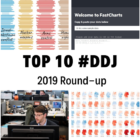corporate records
Researching Corporations and Their Owners
|
Updated in September 2023. Investigative journalists play a crucial role in holding corporations to account, and have revealed labor abuses, environmental violations, corporate impunity and other instances of malpractice through deep-dives into companies and their owners.








